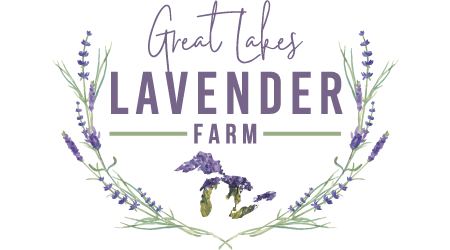In the annals of American history, few stories resonate with as much poignancy and timeless relevance as that of Rebecca Nurse. A central figure in the Salem Witch Trials of 1692, Nurse’s narrative transcends tragedy, embodying the enduring spirit of resilience and integrity. Meanwhile, lavender, an herb cherished across centuries for its soothing properties and symbolic associations with calm and healing, serves as an unexpected yet profound counterpart to Nurse’s story. This article explores the intricate relationship between Rebecca Nurse and lavender, weaving together threads of history, symbolism, and personal connection.
Andrew Russo, a direct descendant of Rebecca Nurse, continues this legacy through his work at Great Lakes Lavender Farm in Rockford, Michigan, ensuring that the heritage of his ancestor is honored in every lavender bloom. As we delve into this historical and botanical exploration, we reveal how Nurse and lavender share an intertwined legacy of resilience, healing, and the pursuit of justice—a narrative that continues to inspire and captivate.
The Life and Trial of Rebecca Nurse: A Story of Courage
To fully appreciate the correlation between Rebecca Nurse and lavender, one must first understand the depth of Nurse’s story. Born in England in 1621, Rebecca Towne Nurse was part of the Puritan migration to the Massachusetts Bay Colony, where she and her husband, Francis Nurse, established themselves as respected members of the Salem Village community. They raised eight children and managed a prosperous farm, a testament to their hard work and integration into the tight-knit society of colonial New England.
However, in 1692, the tranquil life of Rebecca Nurse was shattered. Amid the growing hysteria of the Salem Witch Trials, Nurse was accused of witchcraft—a crime punishable by death. At the age of 71, frail and suffering from health issues, she found herself thrust into a maelstrom of fear, suspicion, and irrationality. Despite her impeccable reputation and widespread support from her neighbors, Nurse’s fate was sealed when spectral evidence—testimony based on dreams and visions—was used against her.
The Trial and Its Consequences: An Unshakable Legacy
Rebecca Nurse’s trial stands as a critical moment in American history, not only as a reflection of the religious and social tensions of the time but also as a testament to the power of integrity. Despite the mounting pressure and accusations, Nurse maintained her innocence with unwavering resolve. Her dignified defense and her declaration—“I am as innocent as the child unborn”—were powerful statements that echoed through the trial.
Even when the jury initially found Nurse not guilty, the public outcry and pressure from judges led to a reconsideration of the verdict. The decision was overturned, and she was sentenced to death. On July 19, 1692, Nurse was hanged on Gallows Hill, an innocent woman caught in the storm of one of the darkest periods in colonial America.
The Symbolic Connection: Why Lavender?
Lavender (Lavandula) is more than just an herb; it has carried symbolic meanings across cultures for thousands of years. Known for its calming properties and its role in traditional medicine, lavender has been used to treat wounds, alleviate headaches, and reduce anxiety. Its symbolism extends beyond its practical applications, representing peace, healing, and resilience. This ancient herb finds its place in both historical and cultural contexts, echoing themes of tranquility and restoration.
But why connect Rebecca Nurse, a victim of the Salem Witch Trials, to lavender? The answer lies in the shared themes of resilience, healing, and memory. Nurse’s story, one of steadfast courage in the face of injustice, mirrors the qualities for which lavender is cherished. Furthermore, as a colonial settler, it is highly probable that Nurse, like many other women of her time, would have been familiar with lavender’s uses. Colonists brought with them not only the seeds of plants but the knowledge and traditions that surrounded them, creating gardens filled with medicinal herbs such as lavender.
Lavender as a Colonial Staple: Healing and Comfort
In 17th-century New England, gardens were essential for survival, providing food, medicine, and essential supplies. Colonists like Rebecca Nurse likely grew lavender alongside other herbs like sage, rosemary, and thyme. Lavender’s medicinal properties made it a valuable asset for early settlers. It was used to relieve headaches, aid in sleep, and treat various ailments. The presence of lavender in colonial gardens thus represented not just beauty, but a lifeline—an essential part of daily life and survival.
The Salem Witch Trials, fueled by hysteria and superstition, were periods of immense stress and anxiety. In such an atmosphere, lavender, with its calming scent and healing properties, could have been a small solace for those facing turmoil. It’s conceivable that Nurse, known as a healer and a woman of faith in her community, utilized lavender herself, whether to soothe a headache, calm a worried child, or bring comfort to her family.
The Rebecca Nurse Homestead: A Place of Memory and Reflection
The Rebecca Nurse Homestead in Danvers, Massachusetts (formerly Salem Village) stands today as a preserved historical site, honoring the memory and legacy of Rebecca Nurse. The homestead provides a tangible connection to the past, allowing visitors to walk the grounds where Nurse lived and reflect on the values she upheld—faith, resilience, and community. Today, lavender grows on the homestead, serving as a living tribute to the legacy of Rebecca Nurse.
The presence of lavender at the homestead is not merely aesthetic; it symbolizes the healing power of memory and the enduring nature of Nurse’s story. As visitors walk through the garden, they engage in a form of historical reflection, connecting the past with the present. The scent of lavender, known for its calming and restorative effects, serves as a bridge, linking Nurse’s life and legacy with the living history of today.
Modern Connections: Andrew Russo and Great Lakes Lavender Farm
Andrew Russo, a direct descendant of Rebecca Nurse, continues the legacy of his ancestor through his work at Great Lakes Lavender Farm. By cultivating lavender, Russo honors the traditions of healing, resilience, and faith that have been part of his family’s history for generations. His lavender farm not only produces high-quality lavender products but also serves as a reminder of the power of nature to heal and inspire. Lavender farming, for Russo, is more than a business; it is a way to connect with his roots and to ensure that the legacy of his ancestor, Rebecca Nurse, is preserved and celebrated.
Russo’s work at Great Lakes Lavender Farm embodies the spirit of community and resilience. By providing lavender plants and products to customers around the USA, he extends the healing properties of lavender beyond his farm, creating spaces for others to find solace and connection. In cultivating lavender, Russo cultivates a connection to history, to family, and to the broader human experience of resilience and healing.
The Rebecca Nurse Homestead: Preserving History Through Lavender
Today, the Rebecca Nurse Homestead continues to be a site of historical importance and a place of reflection for visitors. The lavender that grows there is more than just a plant; it is a symbol of continuity, resilience, and the healing power of memory. Each bloom represents a connection to the past, linking visitors to the life of Rebecca Nurse and the broader story of the Salem Witch Trials.
The homestead hosts events that celebrate the history and culture of the region, inviting visitors to engage with the legacy of Rebecca Nurse and the lessons of the past. Through these events, there is a reminder of the resilience and healing that can arise even in the face of great adversity. It transforms the homestead from a place of tragedy to a space of reflection and hope, where history is not just remembered but honored and continued.
The Global Impact of Lavender: A Universal Symbol of Healing
Lavender’s significance extends beyond its colonial roots, reaching cultures around the world. From its use in ancient Egyptian embalming practices to its role in modern aromatherapy, lavender has always been associated with healing and restoration. The plant’s adaptability—thriving in varied climates and conditions—mirrors the universal human capacity for resilience. In the context of Rebecca Nurse’s story, lavender serves as a botanical representation of her unyielding spirit.
In France, the vast lavender fields of Provence attract millions of visitors each year, symbolizing beauty and calm. In England, lavender has been a staple in herbal medicine for centuries, used in everything from culinary dishes to skincare products. The global recognition and appreciation of lavender speak to its enduring value, making it a fitting tribute to someone like Rebecca Nurse, whose legacy extends beyond the boundaries of her time and place.
Conclusion: Rebecca Nurse and Lavender—A Timeless Correlation
The correlation between Rebecca Nurse and lavender is a narrative woven with threads of history, symbolism, and personal legacy. Nurse’s life, marked by resilience, faith, and integrity, finds a botanical parallel in the enduring qualities of lavender—a plant that symbolizes calm, healing, and the ability to thrive in challenging conditions. Andrew Russo’s work at Great Lakes Lavender Farm embodies this connection, ensuring that the legacy of his ancestor is not only remembered but actively continued through the cultivation of lavender.
Lavender, with its historical, cultural, and medicinal significance, serves as a living tribute to Nurse’s legacy, transforming the Rebecca Nurse Homestead into a place of healing and reflection. As we brush our fingers through lavender, whether in Danvers, Massachusetts, or in Rockford, Michigan, we engage in an act of healing and remembrance, honoring those like Nurse who stood for justice and truth.
Through lavender, Rebecca Nurse’s story continues to bloom, reminding us that even in the face of injustice, resilience and healing are possible. Her legacy, intertwined with the lavender that grows at her homestead, stands as a beacon for those who seek solace, justice, and the enduring power of nature’s healing touch. For history buffs, this connection provides a unique lens through which to view the past—a reminder that the stories we preserve are not just about what happened, but how we choose to remember and honor those who came before us.









